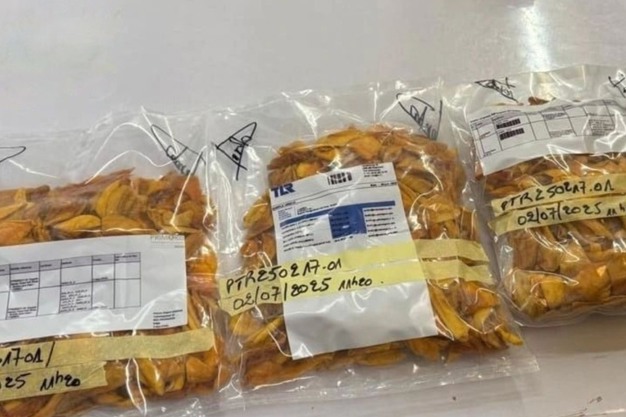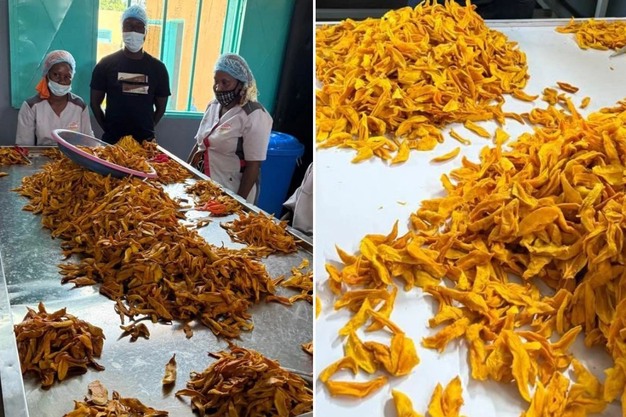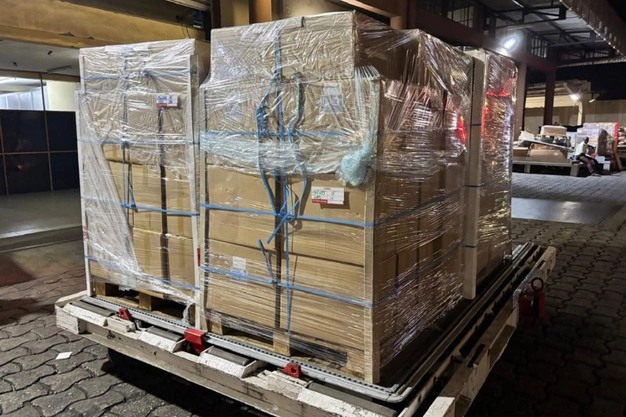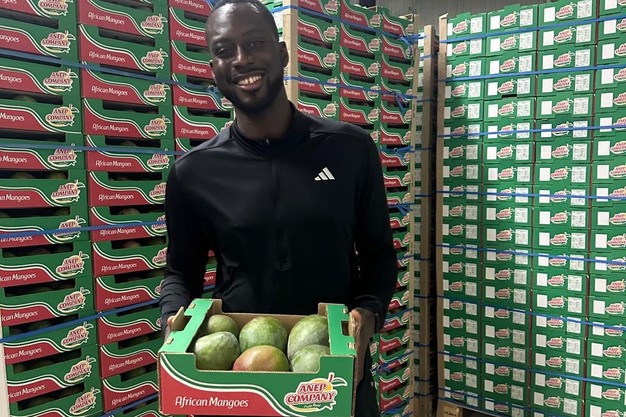West Africa has an oversupply of mangoes that far exceeds the capacity of its local market, while less than 20% of annual production is leaving the country. More than half of the mango production simply rots and is lost. Therefore, processing and producing mango by-products emerges as an essential and promising strategy, with the first steps having already been successfully taken. This is according to Aziz Ndiaye, founder of ANEP Company.
 © ANEP Company
© ANEP Company
Ndiaye describes a new, fast-growing industry: "The strategy to develop mango processing responds to a large unused supply, as well as a growing market. West African countries have limited export capacity due to various reasons related to logistics, global competition, and destination market standards. As a result, significant volumes are wasted each year. However, the processing industry has recently gained momentum and is growing rapidly in several countries, particularly Burkina Faso."
The exporter describes his mango processing operations. He explains, "There are several ways to process mangoes: drying, freezing, producing biogas, and producing concentrates or purées. The most common method in West Africa to date remains drying, although other processes are being introduced. It takes eight tonnes of fresh mangoes to yield one tonne of dried mangoes. At ANEP, we grow mangoes in Burkina Faso, Senegal, Benin, and Côte d'Ivoire, though all of the mangoes we use for drying come from Burkina Faso, and are then exported to several markets, primarily Germany."
 © ANEP Company
© ANEP Company
The choice of mangoes from Burkina Faso is justified by their seasonality and the country's landlocked location. Ndiaye explains, "Mangoes from Burkina Faso are the first to be harvested in West Africa, as early as March when demand is still low, and their season is short. The earliest variety is the Amélie, which is not very popular on international markets. On the other hand, Amélie and other varieties grown in the country are suitable for drying. We export fresh mangoes from Burkina Faso to Morocco by road, in addition to a few shipments to the Netherlands by air. The rest are used for drying, and of course, we prioritize fruit that does not meet the fresh market standards in terms of size and aesthetics."
Burkina Faso is experiencing a boom in its mango processing industry, driven by both drying and producing mango concentrate. Ndiaye explains, "Drying mangoes is an activity dominated by women in this country, and developing this sector contributes to the empowerment of women. Mango drying has therefore been a priority for the government and NGOs in recent years, who have invested in the sector and transferred knowledge. Burkina Faso is currently the leader in this industry in West Africa, alongside Ghana."
 © ANEP Company
© ANEP Company
On the demand side, the market is undersupplied and offers great potential, says the exporter, pointing out that producers and exporters are not yet taking full advantage of it. "Dried mangoes are considered a luxury product in several markets, such as Germany. Retail prices are very high compared to the prices obtained by producers and exporters. I think this is normal for a young industry, and I am confident that the market will adjust as producers and exporters gain experience. We have also identified several potential markets, including the Middle East, Europe, Morocco, and West Africa. Dried mangoes have a much longer shelf life, which allows us to reach broader destinations," he continues.
Mango drying now accounts for one-third of ANEP's production, according to Ndiaye. He adds, "This season, we produced 1,200 tons of mangoes, of which 400 tons were processed and 800 tons were exported fresh. We aim to increase our processed production by introducing additional processes and uses in the near future."
 © ANEP Company
© ANEP Company
"We will, of course, continue to value the export of fresh mangoes, especially the Kent variety produced in Côte d'Ivoire and Senegal. The fresh mango season went very well this year, with better supply from Senegal and strong demand in Europe and Morocco. The season ended while demand in Morocco is still high. I would like to mention in this regard that we have a shipment of fresh Kent mangoes stored in Spain awaiting a buyer and ready to be shipped to Morocco," Ndiaye concludes.
For more information:
Aziz Ndiaye
ANEP Company
Tel: +41 78 617 72 23
Email: [email protected]
www.anepcompany.com
